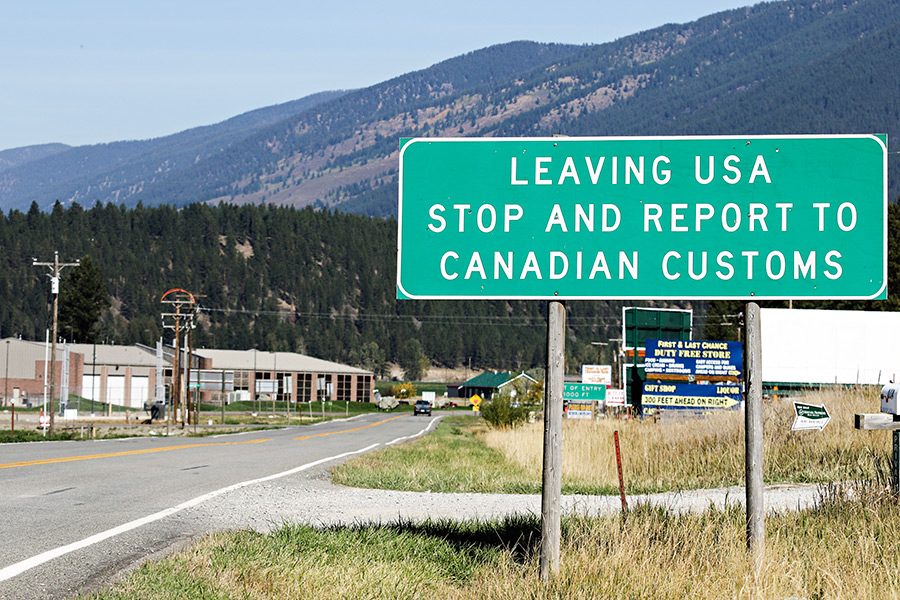Dave Clark has never seen it this quiet.
While shelter-in-place orders and closures related to the coronavirus outbreak have slowed daily life across Montana and the country, the change of pace has been particularly dramatic in the tiny hamlet of Roosville along the U.S.-Canadian border north of Eureka. Clark runs the First and Last Chance Bar and Duty Free Store just a few hundred feet south of the border, which was closed to non-essential travel on March 21. On April 20, the U.S. and Canadian governments agreed to extend the closure for another 30 days.
“I’ve just never seen it this slow before,” Clark said last week.
The closure is unprecedented for the world’s longest undefended border, which stretches more than 5,500 miles from Maine to Washington. Even after the Sept. 11 terror attacks, people were still able to move freely back and forth across the line. Now, it’s limited to those traveling for work or other essential purposes.
For Clark, that means the number of vehicles that pass by or stop at his store is at an all-time low. Clark said he has been able to remain open because of the federal Paycheck Protection Program. But while the loan will get him through the immediate future, he worries about what will happen when the border does reopen. Will Canadians cross as much as they did before?
“The people who came down to do their grocery shopping and stop here for a beer might think twice about making the trip,” he said.
The border closure reveals just how closely tied some communities in British Columbia are to Montana. While there is an international border that separates them from the United States, many residents in communities like Grasmere, Baynes Lake and Elko come down to Eureka to grocery shop because it’s closer than driving all the way to Cranbrook or Fernie.
Mike Skranak, manager of the Stein’s Market in Eureka, said he normally sends more than 750 grocery fliers a week north to the small communities north of the border.
“They’re basically locals,” he said. “There are a lot of Canadians that I’m used to seeing once a week and now I haven’t seen them in a month and a half.”
Skranak said the impact on his business hasn’t been too significant yet because Montanans have been doing plenty of shopping since restaurants are mostly closed and people are cooking at home more. He described seeing a drop in pre-packaged food sales, like cookies, and an increase in baking supply sales, suggesting people are trying to make more food from scratch to fill the time.
Like Clark, Skranak wonders what will happen when the border fully reopens again. While Canadians may still cross to shop, he thinks fewer will come down on long holiday weekends, which could hurt his bottom line. During some holiday weekends in the summer, Canadians make up nearly half of the store’s sales.
